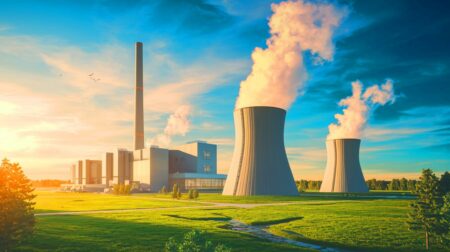President Joe Biden introduced a $2 trillion infrastructure plan for the United States on Wednesday, one that’s designed to establish the U.S. as a global leader on climate change with an overhaul of the transportation sector, energy, construction and more.
The American Jobs Plan, so named because of the opportunities it’s meant to create, would be implemented over 10 years, according to the White House. The sweep of the proposal is as enormous as it is ambitious: If approved by the U.S Congress, the plan touches on everything from roads and rail, to the environmental and racial justice sought by communities disproportionately affected by years of air pollution, toxic waste and neglect.
“It’s not a plan that tinkers around the edges,” said Biden, introducing the proposal in the historically significant city of Pittsburgh, a former steel town central to the nation’s development.
“It’s a once in a generation investment.”
Under the plan, the U.S would invest $174 billion in the electric vehicle (EV) market, which is currently just a third of the market share held by the rival Chinese. That means a commitment to consumer sales and tax incentives to encourage transition away from fossil fuels, alongside a national network of 500,000 EV chargers by 2030. It also allows for robust investment in the U.S. auto industry.
Some 20,000 miles of roadway would be rebuilt across the nation, along with 10,000 bridges in desperate need of repair and an additional 10 “economically significant” bridges that will need to be replaced.
“President Biden’s plan will deliver infrastructure Americans can trust, because it will be resilient to floods, fires, storms, and other threats, and not fragile in the face of these increasing risks,” the White House said.
Other climate-focused projects include upgrades to water systems and treatment facilities, with $111 billion earmarked for the removal of all unsafe lead water pipes and $10 billion to monitor and remediate PFAS (per- and polyfluoroalkyl substances) in drinking water.
On energy, the Biden plan envisions the U.S. move away from fossil fuels with new investment in offshore wind and the expansion of clean-energy sources while protecting existing nuclear and hydropower infrastructure. Research and development would get a boost with some $35 billion in funding, including advanced nuclear solutions and carbon capture and storage. At the same time, the proposal would deliver $16 billion to end the damage caused by methane emissions from orphan wells, and pollution caused by abandoned mines.
The U.S. proposal is meant to address its own long-deferred and oft-crumbling infrastructure, but it makes clear that the country seeks to compete with China for global leadership on climate and reposition itself on the world stage.
“America lags its peers – including Canada, the U.K., and Australia – in the on-time and on-budget delivery of infrastructure, and is falling behind countries like China on overall investment,” the White House said.
The infrastructure investment package is transformative in the same way the U.S. led on space exploration, Biden said, adding that 50 years from now people will look back across the generations and remember it as the time that America won the future, but only if the U.S. acts with urgency.
“We have to move now,” he said.
Did you like it? 4.6/5 (22)








